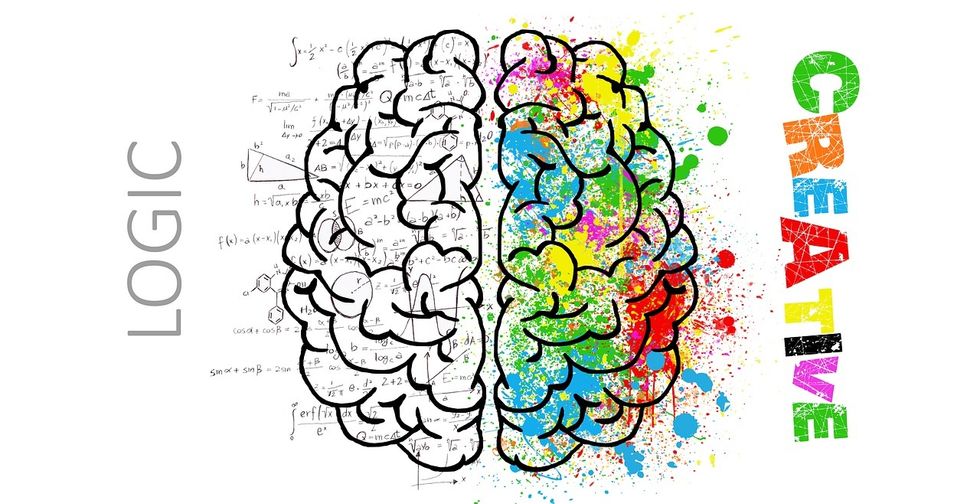Pre-law students have a penchant for reading, writing and communication skills. It logically follows that future professionals that will read dense legal texts and communicate them to their clients in a concise manner must master these skills. Therefore, if a student is pre-law, they are good readers and writers. Please direct your attention to the phrase "it logically follows". Does that truly follow? Let's break this down.
R= good reading skills
W= good writing skills
S= good pre-law student
S ⊃ (R • W)
This looks like a scribble (trust me, I know) but it translates into real words- I promise. This just means: "If a student is a good pre-law student, then they have both good reading and writing skills".
As a typical right-brained student, I wasterrified of taking a class that looked so much like math. I was worried about not understanding the concepts, tanking my GPA, and a whole host of other (catastrophizing) thoughts. The first week surprised me. We focused on whether or not arguments made sense. There were no squiggles, no dots, no foreign equations. We just focused on the quality and logic of arguments. I got an A on the first exam.
Then came the second unit. Now, we focused on the weird symbols and truth tables and verbiage I was unfamiliar with. The first homework assignment was rough. It involved translating arguments into symbols and it took me hours to complete. I was so discouraged and was worried about the next class. Yet, the following assignments went by quickly and my grades steadily improved. Once I had the basics down, I realized I had the skills needed to complete the problems. By the end, it was fun and satisfying to complete the homework. As I'm writing this, my next test in if 10 hours and I'm feeling good!
We are all great readers and writers. If some of you fear this class as I did, go in it confidently! You already have the logical mind that helps you read complex texts and support your arguments in papers. In fact, this class will only improve your reading and writing skills! You will subconsciously be more careful about how you formulate arguments and build good structures for your papers. You will also be able to find holes in others' arguments, analyze them more critically, and/or appreciate their well-constructed arguments.
Here's to hoping you go into your Formal Logic class confidently and I wish you well!








 The minimum wage is not a living wage.
StableDiffusion
The minimum wage is not a living wage.
StableDiffusion
 influential nations
StableDiffusion
influential nations
StableDiffusion










